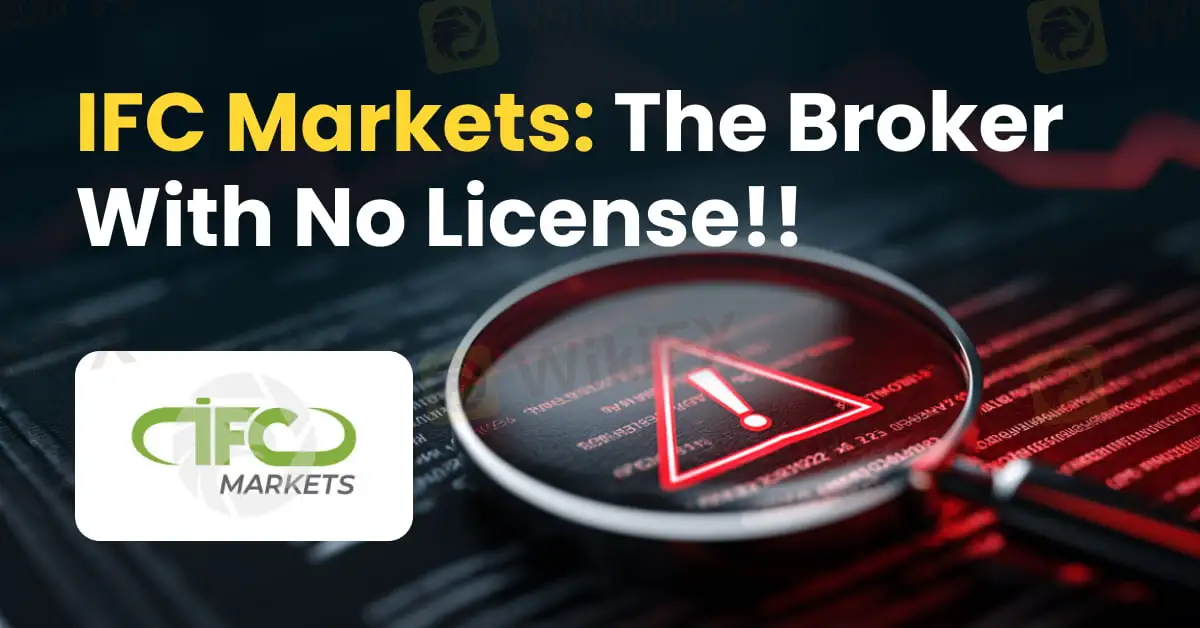简体中文
繁體中文
English
Pусский
日本語
ภาษาไทย
Tiếng Việt
Bahasa Indonesia
Español
हिन्दी
Filippiiniläinen
Français
Deutsch
Português
Türkçe
한국어
العربية
IFC Markets: The Broker With No License!!
Abstract:When evaluating a forex broker, regulatory status is one of the most important indicators of credibility and investor protection. In the case of IFC Markets, WikiFX’s findings raise several red flags that potential traders should carefully consider before engaging with this platform.

According to WikiFX, a global broker regulatory query platform, IFC Markets currently holds no valid regulatory license. This absence of official oversight should be a critical point of concern for any investor or trader, as it means the broker is not subject to the supervision or compliance standards typically enforced by recognized financial authorities.
Operating without a license may allow a broker to bypass essential requirements such as capital adequacy, client fund segregation, and transparent dispute resolution processes. In heavily regulated jurisdictions, brokers must comply with rigorous financial and ethical standards. The lack of such oversight in IFC Markets' case introduces a higher degree of operational and financial risk for clients.
Additionally, IFC Markets has received a WikiScore of 1.53 out of 10, a notably low rating. This score is based on a range of factors, including license verification, business operations, trading environment, risk control, and customer feedback. A score this low suggests that the broker may fall short in providing a safe and reliable trading experience.


In environments where transparency is lacking, traders may face difficulties such as poor fund security, slow withdrawal processes, or even the inability to retrieve deposits. For those unfamiliar with regulatory implications, a license is not merely a legal formality. It acts as a safeguard against malpractice, ensuring the brokers accountability.
Without valid licensing and with such a low trust rating, IFC Markets may expose users to greater financial uncertainty. Even if the broker offers attractive trading terms or promotional incentives, the absence of regulation significantly diminishes its credibility and investor protection mechanisms.
Investors are strongly advised to perform due diligence when selecting a trading platform. Resources like WikiFX offer helpful tools to assess the real regulatory status and operational claims of brokers. In today‘s online trading environment, being informed is not optional—it’s essential.
Choosing a regulated broker can greatly reduce your exposure to unnecessary risks. When a broker is operating without oversight, its worth asking: What are they hiding, and are you willing to take that chance?

Disclaimer:
The views in this article only represent the author's personal views, and do not constitute investment advice on this platform. This platform does not guarantee the accuracy, completeness and timeliness of the information in the article, and will not be liable for any loss caused by the use of or reliance on the information in the article.
Read more

Truth About Markets.com: 5 Hidden Risks Revealed
There are many brokers that offer too many promotions. Have you ever wondered why they do this? This Could be the story of Markets.com. Before you choose Markets.com, read about the hidden risks they never openly talk about.

Breaking News: OmegaPro Caught in a $650 Million Forex and Crypto Investment Scam
An indictment was leveled against two men in the District of Puerto Rico for their alleged involvement in the operation and promotion of OmegaPro, an international investment scheme that has led to financial losses worth over $650 million for investors. Check more about this story

5 Reasons: Microtrade Is a Red Alert
Is MicroTrade a scam or is it safe? This is a common question for many who are looking to invest or trade. Check out this article and you’ll see it is an investment scam

No License, No Security: CNMV Issues List of 10 Illegal Firms
Spain's financial watchdog, the National Securities Market Commission (Comisión Nacional del Mercado de Valores, CNMV), has issued warnings against 10 unlicensed forex brokers operating without proper authorization.
WikiFX Broker
Latest News
Alchemy Markets Review 2025: Key Facts and Insights
Largest Market Makers
Temasek's portfolio scales new peak even as divestments hit over 2-decade high
Exposing Trade Capital Limited - Siphoning Millions, Restricting Withdrawals, Charging Extra Fees
GMI Edge: A Closer Look at Its Licenses
How Do I Place a Stop-loss Order?
5 Serious Warnings About Mirrox! You Can’t Afford to Ignore
FXPRIMUS: 5 Things They Don’t Want You to Know
Manual vs. Automated Forex Trading: Which One Should You Choose?
Mining firms lift FTSE 100 to record high after Trump confirms 50% copper tariff
Currency Calculator


